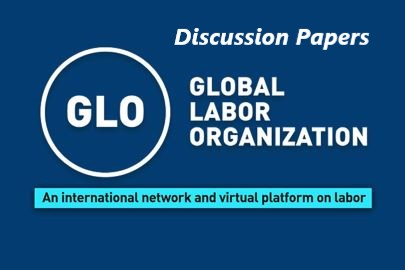A new GLO Discussion Paper suggests that cultural biases against women may contribute to the observed low female employment.
GLO Discussion Paper No. 1015, 2022
Children and Female Employment in Mongolia – Download PDF
by Nikolova, Elena & Polansky, Jakub
GLO Fellow Elena Nikolova
Author Abstract: Although a large body of literature has argued that motherhood has a profound and long-lasting negative effect on the employment and earnings of women, there is little evidence focusing on the post-communist region. This paper exploits the latest round of the EBRD-World Bank Life in Transition Survey (LiTS) and of the Mongolian National Statistics Office Household Socio- Economic Survey (HSES) to examine the correlation between the presence of children of different age categories in a family and female employment in Mongolia in 2016. We examine the availability of childcare, social norms and attitudes towards women, as well as household decision-making as potential explanations. We find that small children decrease the probability of female employment relative to women with no small children. In particular, women with two children aged one to six years are 21.5 percentage points less likely to be employed. Our results also suggest that cultural biases against women may be – at least partially – responsible for the low female employment levels which we uncovered. These results are unlikely to be driven by omitted variable bias.

GLO Discussion Papers are research and policy papers of the GLO Network which are widely circulated to encourage discussion. Provided in cooperation with EconStor, a service of the ZBW – Leibniz Information Centre for Economics, GLO Discussion Papers are among others listed in RePEc (see IDEAS, EconPapers). Complete list of all GLO DPs – downloadable for free.
The Global Labor Organization (GLO) is an independent, non-partisan and non-governmental organization that functions as an international network and virtual platform to stimulate global research, debate and collaboration.
Ends;

